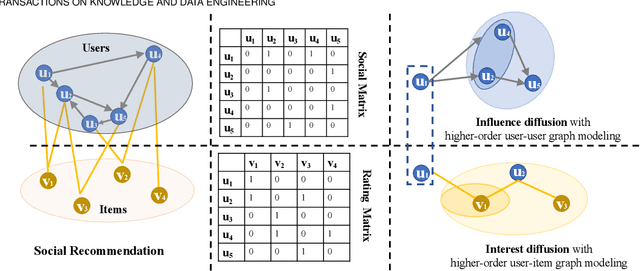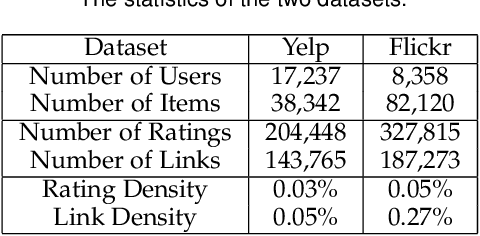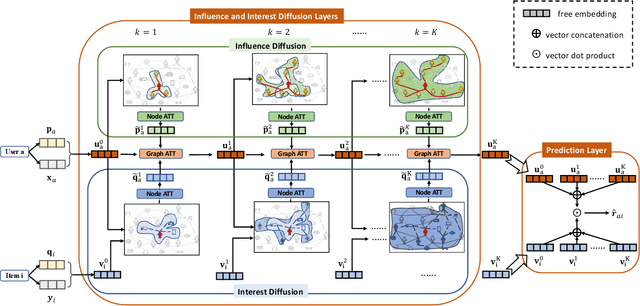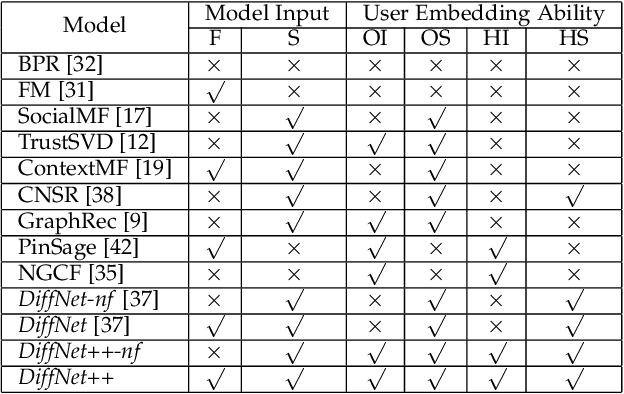DiffNet++: A Neural Influence and Interest Diffusion Network for Social Recommendation
Paper and Code
Feb 22, 2020



Social recommendation has emerged to leverage social connections among users for predicting users' unknown preferences, which could alleviate the data sparsity issue in collaborative filtering based recommendation. Early approaches relied on utilizing each user's first-order social neighbors' interests for better user modeling and failed to model the social influence diffusion process from the global social network structure. Recently, we propose a preliminary work of a neural influence diffusion network (i.e., DiffNet) for social recommendation (Diffnet), which models the recursive social diffusion process to capture the higher-order relationships for each user. However, we argue that, as users play a central role in both user-user social network and user-item interest network, only modeling the influence diffusion process in the social network would neglect the users' latent collaborative interests in the user-item interest network. In this paper, we propose DiffNet++, an improved algorithm of DiffNet that models the neural influence diffusion and interest diffusion in a unified framework. By reformulating the social recommendation as a heterogeneous graph with social network and interest network as input, DiffNet++ advances DiffNet by injecting these two network information for user embedding learning at the same time. This is achieved by iteratively aggregating each user's embedding from three aspects: the user's previous embedding, the influence aggregation of social neighbors from the social network, and the interest aggregation of item neighbors from the user-item interest network. Furthermore, we design a multi-level attention network that learns how to attentively aggregate user embeddings from these three aspects. Finally, extensive experimental results on two real-world datasets clearly show the effectiveness of our proposed model.
 Add to Chrome
Add to Chrome Add to Firefox
Add to Firefox Add to Edge
Add to Edge